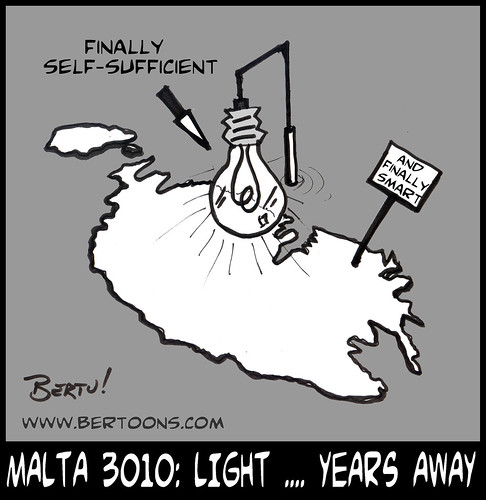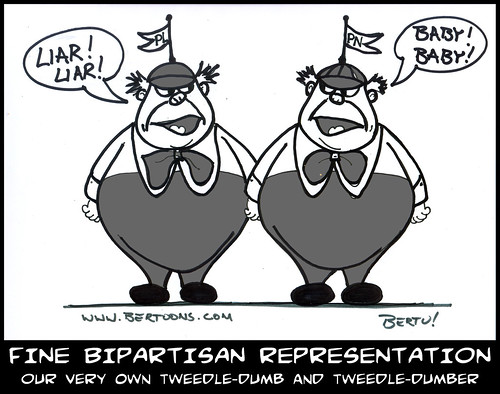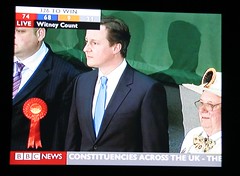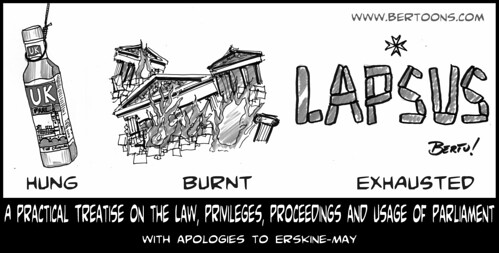Laughter, they say, is the best medicine. More often than not a good sense of humour is the ideal sort of equipment to deal with hard times – that and a constant reminder that “this too shall pass”. The intelligent ability to make light of one’s own troubles must not be confused with ignorance of the predicament in which one finds oneself. Any event has an inherent absurd ring to it and humour is the exploration of the absurdity in a conscious decision to highlight the very absurd while assuaging the potential discomfort.
There comes a point though when the shield of humour starts to melt in your own hands. It’s the point where it stops being funny. The joke is old, the joke is stale or, worse still, the joke risks backfiring into something more dangerous. At that point it becomes very difficult to continue to rely on the medicine that is laughter. At that point it is difficult to “find it funny”.
It stops being funny when it happens too often
Take Thursday morning. I’m sure quite a few who found themselves waking up to what seemed to be the zillionth power failure thought of a hundred new jokes. The first reaction is the “Only in Malta” syndrome – you know the type; we’ve been cracking this kind of joke ever since Freedom/Indepen-dence. As a kid I remember finding the “Malta, We Love Malta” song side-splittingly hilarious what with all its references to driving wherever there is shade and all. In the eighties period of electricity by ration, we coped and we coped through humour. In the noughties we developed a panoply of repartees about the infamous Boiler No. 7.
Yep. The inanimate creaking boiler in Marsa became the star of the show with its own Facebook page and fans. Meanwhile, where was everybody? Everybody was in the dark. The humour had been accompanied with a sort of resignation. The “Xi trid taghmel?” (What can one do?) mentality stepped in. It is the net result of a coping mechanism on a national scale: the humoured tolerance of mediocre alternation at the head and administration of our country. We’ll joke about it even when another committee is appointed, in James Hacker style, to investigate the latest fault and conclude to a bemused populace that: “Yes, we can screw it up… again (and again)”.
Humour can help us cope with the darnest of abuses in a democracy. We joke that it is only in totalitarian countries that facts are suppressed – in democracies they take decisions not to publish them. Once the joke is said it is practically OK. A little mantra that delivers these sins away from our heads. Like the gaseous build up in the stomach, it is soon forgotten once the fart is delivered. (Pardon my toilet metaphor but hey, I HAVE to make you laugh along the way).
So while we have been regaled with sufficient blackouts to qualify for BBC Africa’s online competition for “Best Power Cut Story” (yes, it’s true – and there is no European version), we still find no problem with the fact that our two surest bets for representation (on current rules) seem to be taking the joke a bit too far. I am not too sure how much longer the man in the street can keep wielding his humour shield the next time the South is thrown into chaos because of one traffic light (one,) but somehow I think it has all got to do with the inability to link that occurrence to Labour’s walk-out from the Committee of Strengthening Democracy and PN’s Sir Humphreyesque flustering away from accountability. Vote for change? Ha! Now that’s a funny one.
It’s not funny if the wrong people heard it
Karl Farrugia, aged 24 with a residence in Swieqi, was reluctantly rocketed to the top ten list of “Only in Malta” notoriety under the special section ‘weird but true’. Farrugia provided more living proof of the current human inability to manage his Internet presence with the necessary care. As a citizen of proud Roman Catholic Malta, he should have known better than join the Facebook group called “No to the Pope in Malta”. His greater crime was to suggest in a comment on the same group that should Ben XVI want to feel closer to J.C. then all we had to do was to perforate his limbs with the use of projectiles. In other words shoot bullets through the papal palms and feet.
No doubt, Farrugia’s comment will not register as the most intelligent to date but there is something infinitely sad in the story that followed. Farrugia was prosecuted under the Press Act provisions on, among other things, “incitement to violence” and ended up being fined €500 for his fine work on the website. You guessed it Karl… it ain’t funny and nobody is laughing. I had quite a few problems digesting this case and a thorough discussion is still open ended on J’accuse the blog. I will refrain from such legalistic phraseology like context and intent, but I’d like to dwell on the relative issues involved.
A man called Mario Grech gave a speech to an assembled congregation in a largish hall last week. During that speech Mario warned the congregation of the perils of liberalism while describing such liberalism as a “disease” that required some form of “cure”. Quite exactly what kind of pills Mario would be suggesting to cure this latest affliction (I hope it’s not as bad as avian flu) is beyond me and beside the point. Now this speech could (and I stress the could) have offended a few individuals who call themselves humanists. They are appalled that an individual can stand up before a crowd in public and make such calls that are vaguely reminiscent of purges and suchlike.
It simplifies matters no end that the aforementioned man Mario is one who is often seen wearing a pointy hat and armed with a long stick (mostly harmless though), and that the largish hall was a temple of worship of what is by many considered the dominant religious denomination of the country. Yep. Bishop Mario Galea thinks liberalism is up to no good and the humanists are furious. They are doubly furious actually – firstly that His Pointy Hattedness should even consider equating their philosophy to a disease, and secondly that the laws of the land did not pounce to their rescue with the same readiness and willingness as they did in the case of Karl. Ben XVIth was after all a foreigner in our land – humanists such as Raphael Vassallo are not. What then?
I find all this contradictory mess worrying. Malta is not alone in asking these questions (and in having had enough with the coping mechanism that is humour). A colleague recently pointed out a brilliant essay by Gustavo Zagrebelsky – former Italian constitutional court judge. Written in 2006, it is called “The Paladins of Identity and Tolerance in the West”. Here’s Zagrebelsky on the problem of democratic society: “Whoever recognises himself in democracy would say: in order to defend it let us operate with a spirit of concord, let us battle the arrogance and plutocracy, let us respect each other, cultivate legality, promote solidarity, give security to the poor and slow down social competition. In other words: let us not give up on ourselves, on what we are and what we believe, let us correct the defects and combat that which disfigures us. Instead no. Instead we say: enough of this (identity), let us give ourselves another, a militant identity that makes us recognisable not to each other but against each other. Instead we say that the institutions should not be neutral but should serve this battle and all the worse for he who does not recognise them. Instead we believe that identity justifies the sacrifice of others. Giving ourselves this very kind of identity means precisely to promote a battle between civilisations.”
I want to live in a society where both the Church and the Humanists can feel comfortable expressing themselves and their idea of what a just society is about. I don’t want to live in a society where any of the two (or anyone else) is busy imposing their idea on all the rest. I’d hate to live in that kind of joke, and quite frankly I don’t think it’s funny.
The secret of comedy? … timing
Someone who has no time for humour at the moment is Madame Merkel. She’s been shaking the markets like there’s no tomorrow, and although I never thought I’d say this, I think that the Germans do have a point. The euro states cannot expect to have a free ride only to go sucking at the German breast whenever there is a problem. The benefits of the eurozone will require the strict rigours of better discipline. Even General Sarkozy has recognised that as he prepares to amend the French Constitution to that effect.
Another unfunny bit of sabre rattling is going on in the Far East. The two Ks are at it again as a report has finally shown that a North Korean torpedo had actually sunk a South Korean warship. It’s not exactly battleships we are talking about and there is a real risk of war that would only add to the unsettling state of affairs that we have witnessed in Thailand in the past days. All the more worry for the economic markets – all the worse for our beloved euro.
Lastly, look out at the big battle of Facebook v the World as the social networking giant faces its moment of truth. Will its lackadaisical treatment of private data signal the beginning of the end for the facebook model? Will Facebook and Google recover from recent slips in PR thanks to their gaffes on the data protection side? All that and more promises to be an interesting development – is Web 3.0 round the corner?
www.akkuza.com featured Humanists, Catholics, Bondiplus and the BA this week. More fun coming up next week as the sun has finally come to Luxembourg.




![Reblog this post [with Zemanta]](http://img.zemanta.com/reblog_e.png?x-id=37d347b4-9541-4c91-88e2-94c9724dc9b8)


![Reblog this post [with Zemanta]](http://img.zemanta.com/reblog_e.png?x-id=de28fb97-017a-4cc5-aafd-291264fb1793)